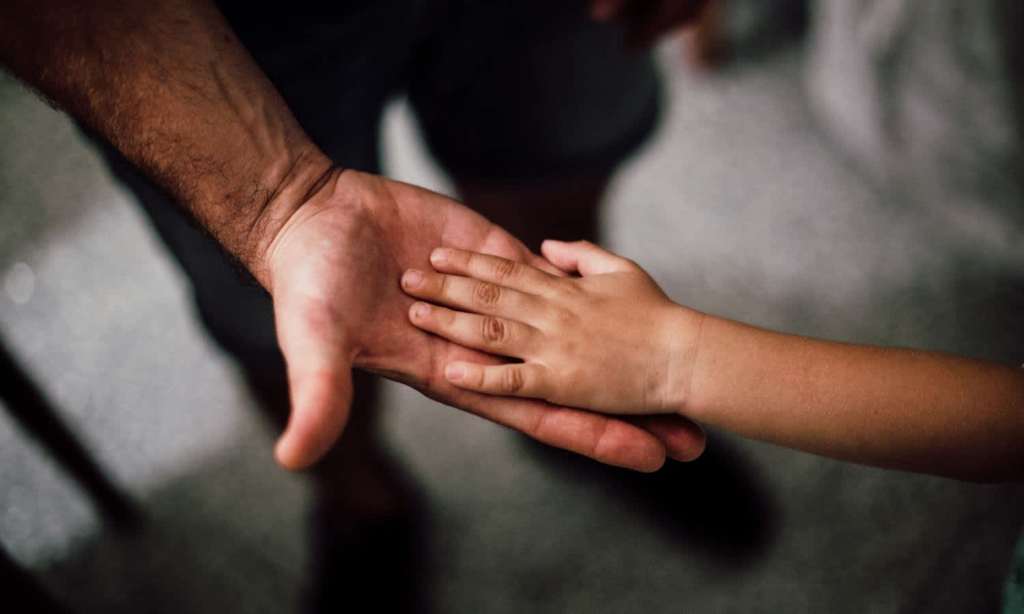Kids, as adorable as they are, are exhausting. Raising kids during a pandemic — even more exhausting, even if you’re trying to parent mindfully. But now there’s news to vindicate all suffering parents who have been feeling burnt out. Science has confirmed that parental burnout is a thing. And it’s especially a thing in westernised countries.
So you’ve heard of work burnout, but you may be sitting there wondering what parental burnout is. The study refers to it as “a high level of stress in the family [that] can lead to parental exhaustion.” Amber Rules, director and founder of Rough Patch, an affordable counselling and mental health care service, goes a bit deeper.
She explains it so: “Put simply, burnout occurs when stress or overwhelm outweighs our emotional resources. Parental burnout is often the intense exhaustion and overwhelm we feel in relation to parenting tasks, when we don’t have enough time or resources to do everything we need to, and look after ourselves as well.”
The study also found that parental burnout seems to more so affect parents in Western countries, with researchers saying that culture plays a predominant role. Professor Roskam, a parental burnout specialist, said: “Our individualistic countries cultivate a cult of performance and perfectionism.”
In fact, parenthood in Western countries is “a very solitary activity” — in poorer countries, the more “collectivist” nature in which children are raised, seems to protect against parental burnout.
When you don’t have a lot of support, parenting can be “a huge mental load,” says Rules, and everyday tasks can be a “behemoth effort”. And our solitary way of parenting means “You can’t share the load with other people.” And sometimes, according to Rules, even if you do share the load, “You might have to plan so much that it’s just easier not to.” This constant emotional labour, and mental load, leads to parental burnout.
And it’s not just the individual parent that’s affected. “If anyone in a family system is burned out, it’s very likely to affect everyone else,” explains Rules. The parent who is burnt out may be “less patient and tolerant, need more alone time, feel anxious or depressed.” This can lead to being unable to stay as connected to our partner as usual, or not be able to contribute equally to household and parenting tasks.
As for how it affects kids? “We may inadvertently take out our difficult feelings on our children,” says Rules, because of having less capacity for distress tolerance.
And, unsurprisingly, COVID has impacted parenting and parental burnout. “Connection and community are even more difficult.” The usual reprieves from solitary parenting — playgroups, playdates, shared childminding duties — have lessened, or disappeared entirely in some instances.
“Children are home far more than usual, changing the normal routines.” The normal routines which see, and allow for, a parent to get some space for self-care and restorative activities, “or simply [to] do important things that need to be done.”
But don’t worry, it’s not all doom and gloom. We — and Rules — would never leave you like that. First off, having a plan can help (type-A’s, rejoice!). Rules suggests thinking creatively: Looking into paid services that could take the pressure off (cleaners or food delivery); swapping babysitting hours with other trusted parents in your area; talking to your partner about having a set amount of “you time” each week; reading parenting books.
“Remember, combatting burnout isn’t just about having a bath or a manicure. It’s about building sustainable, practical things into your life that help you feel more emotionally resourced.”
And those suggestions were just for individuals feeling parental burnout. For couples to combat parental burnout — together — communication is key. “Acknowledge you might both have different needs, parenting styles, and approaches, and supporting each other in a way that suits you both is important.” Rules also suggests couples counselling, as it’s a great way to get support from someone who has experience in managing parental burnout, and can also suggest ideas and additional resources.
Looking for small daily ways to cope with parental burnout? “Build time for important things into your day.” Oh, and yes, boundaries are important — “keep [them] intact where possible.” Another thing to do when and where possible? Ask for help.
As for the aforementioned “cult of performance and perfectionism”? Rules acknowledges that it’s tricky, but mentions a concept called ‘good enough parenting’. At the end of the day, research says you only need to get it right about half of the time when responding to a baby’s bids for attachment — 50% will still have a positive impact on the baby’s development.
If you’re reading this and thinking “But my child is a toddler/tween/teen” — the same is true for them. “You don’t have to be perfect,” Rules reassures, “You just have to do your best and repair any relationship ruptures with compassion when they happen.”
Read more stories from The Latch and subscribe to our email newsletter.







